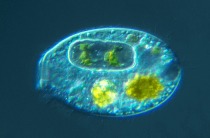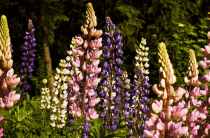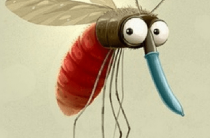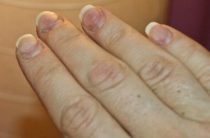Allergy symptoms cause a lot of trouble for the patient. Especially when it comes to such manifestations as a runny nose, congestion and swelling of the nose, which make it difficult to breathe. But with allergies to plant pollen or dust, which are very, very common, these are one of the most common manifestations.
Respiratory allergies are constant sneezing, nasal inflammation, runny nose, watery eyes, etc. These unpleasant symptoms literally haunt the patient everywhere and everywhere. Often these symptoms occur after exposure to dust or plant pollen.
When treating allergies, it must be borne in mind that the patient's hypersensitive immunity may respond with new allergy attacks. No matter how absurd it may sound, you can even be allergic to allergy medications. Therefore, it is necessary to use drugs to relieve allergy symptoms carefully, only as directed by a doctor.
Among the therapy, you can find both classic antihistamines along with glucocorticoids, as well as drugs that reduce vascular lumens, immunosuppressants, sea water for washing the sinuses.
A distinctive feature of the therapy of respiratory manifestations is the local nature of this event, which allows you to relieve the symptoms of allergic manifestations with a minimal risk of systemic effects on the entire body.
Sprays or drops. What to choose?
nose drops for allergies
Most drugs for the symptomatic relief of swelling of the eyes and nose have two forms of application: in the form of sprays for injection and in the form of drops. The most important advantage of drops is the price. Preparations in the form of drops, in view of the less convenience in terms of application in terms of standing, are much cheaper than preparations in the form of a spray. To apply drops, drip the required amount into the nose, while the head should be folded back and held in this position for about a minute. This is necessary so that the liquid is evenly distributed throughout the nasal cavity.
As you can see, nasal drops are quite problematic to use. This requires adherence to certain procedures in order to achieve the most effective application. However, the use of drops instead of a spray can significantly save on this group of drugs.
Sprays for allergies
And so, medicinal substances in the form of a spray are stored much longer than medicines in the form of drops. Sprays are very easy to use. They can literally be used on the road. To do this, allocate a few seconds. But alas, the price bites, because the sprays are sold together with a special injection device, which serves as an additional factor affecting the price.
Vasoconstrictor drugs
Histamine released as a result of the immune response affects the capillaries in the nose. This leads to their expansion, which causes difficulty in nasal breathing. The substances used in these drops narrow the lumen of the blood vessels in the nose, which makes breathing easier.
A good reason is required to use these funds. Swelling of the nasopharynx should be serious, significantly aggravating breathing and interfering with the normal functioning of the patient. After all, vasoconstrictor drops have an unpleasant tendency: literally after a week of taking them, dependence is formed on them. So, those who often use these drops may notice that even if the allergy symptoms have subsided, the elimination of nasal swelling is no longer possible without their use.
These drugs are mainly used to relieve the symptoms of allergies, which occur in an acute form. Due to the high degree of development of drug dependence, they are not used to treat chronic forms that require long-term use of drugs for symptomatic treatment.
Vasoconstrictor drops require precautions when using:
- Do not use vasoconstrictor nasal drops for more than 5 days;
- In no case do not exceed the dosage regimen prescribed by your doctor;
- Use drops as little as possible and only in extreme cases
Antihistamine nasal drops
The principle of action of antihistamine drops or sprays is based on the fight against histamine, which provokes its appearance. When penetrating into the vessels, histamine blockers connect to histamine receptors, which are responsible for vasodilation and prevent it from developing allergy symptoms.
Unlike vasoconstrictor sprays or drops, they also help in eliminating other manifestations of rhinitis, such as runny nose, sneezing, watery eyes, etc. Antihistamine drops and sprays are great for long-term use. So, for example, they can be prescribed as part of complex therapy to relieve the symptoms of allergic diseases. Alas, it is not always possible to completely eliminate all allergy symptoms by acting only on histamine, so they are rarely prescribed as the only drugs to suppress the symptoms of rhinitis.
Hormonal drops and sprays
This group of drugs is based on the local effect of cortisol, which suppresses allergy symptoms when it enters the body. They have a cumulative effect, which may not appear immediately. Therefore, they are not prescribed for the treatment of acute forms of allergic rhinitis.
Corticosteroids, both systemic and local, can cause unwanted side effects with prolonged uncontrolled use. Therefore, avoid using them unless directed by a doctor. Thus, the most common side effects are: injuries of the joints and ligaments, muscle weakness, peptic ulcers, and immunosuppression.
Mast cell stabilizers
These substances prevent the release of histamine from mast cells, due to the fact that they stabilize the membrane, which, being in a state of biochemical equilibrium, becomes incapable of releasing this hormone.
Immunomodulators
Immunomodulators are substances that stabilize the immune system. This complex includes all known components of a diverse nature that have a positive effect on immunity. They are desirable to use, because they eliminate the main cause of allergies - a violation of the normal functioning of the immune system. However, despite the solidity of the effect, it develops more slowly than other groups of drugs, so they are not suitable for independent use.
The appointment of topical preparations by a doctor for symptoms of allergic rhinitis largely depends on the form in which it occurs:
- Acute allergic rhinitis. This form is characterized by the presence of symptoms that penetrate in an extremely intense form. So, the patient experiences severe nasal congestion, which literally does not allow him to breathe, frequent runny nose, with a lot of secretion, strong and frequent lacrimation. This form often develops abruptly, immediately after contact with the allergen. To stop the symptoms of this form, drugs are needed that have an instant effect.
- The chronic form is characterized by a long course with less severe symptoms. In this case, it is necessary to use drugs with a long half-life, which have a long, not so intense effect.
Selected allergy medications
Naphthyzine is a proven remedy with a strong vasoconstrictive effect on the walls of blood vessels. The therapeutic effect unfolds almost instantly. However, naphthyzine is only suitable for stopping acute allergic manifestations, since its long-term use often leads to the formation of drug dependence. Patients who use naphthyzine for a long time note that severe nasal congestion can no longer be removed without naphthyzine.
Vilozen is a drug belonging to the class of immunomodulators, which has the ability to normalize the course of allergic reactions. The use of this drug can reduce the pathological sensitivity of the patient's body to the allergen.
Levocabastine is an antihistamine drug. Its use allows you to eliminate the main manifestations of allergic reactions. However, in addition to histamine, some other substances take part in the development of allergic reactions, on which levocabastine has no effect. For this reason, it is almost not prescribed as part of mono-therapy.
Cromhexal is a mast cell membrane stabilizer. It is an effective and safe drug that can be used in the treatment of allergy symptoms in babies.
Aquamaris is a preparation based on salty sea water, which has a beneficial effect on the nasal mucosa. Relieves allergy symptoms.
Dexamethasone - in the form of drops is an effective remedy for eliminating local symptoms of allergic rhinitis. It has significant side effects, so it is mainly used for a short time and in cases where other drugs have been useless.
It must be remembered that despite all the variety of drugs for allergies, it is still better to prevent this disease than to treat it. There are many measures that will allow you to significantly reduce the intensity of allergic symptoms. Basically, allergic rhinitis is characteristic of respiratory forms of allergy (allergy to dust, plant pollen, poplar fluff). Fortunately, their symptoms can be significantly reduced if special preventive measures are followed:
- If possible, do not be outside in dry and hot weather, during the day, with strong gusts of wind. Under such weather conditions, activity, the concentration of provocative substances in the air reaches maximum values;
- Install home appliances such as an air conditioner or a room air purifier. Most of the time a modern person spends indoors, therefore, in the prevention of allergic rhinitis and bronchial asthma, the purity of the air in the room is of great importance, which should be as free as possible from provoking factors;
- Move for the duration of the exacerbation to places whose air is free from provoking factors. In allergic rhinitis and bronchial asthma, the best air is sea with moderate humidity;
- Engage in physical education, as dosed physical activity strengthens the immune system, as well as improves the functioning of the respiratory system, contributes to its overall recovery;
- Refrain from using a large amount of household chemicals and cosmetics, as they irritate the nasal mucosa;
- Consume vitamins and minerals for normal immune function
Remember that allergic rhinitis should be treated by competent doctors. To avoid health problems, refrain from self-medication.















